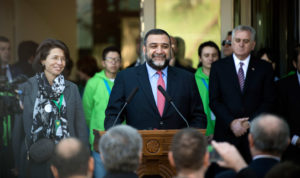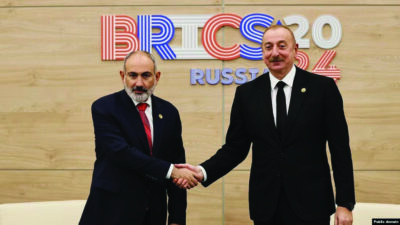
By Alin K. Gregorian
Mirror-Spectator Staff
MOSCOW — Philanthropist Veronika Zonabend has a lot on her plate, but for her, the United World Colleges (UWC) Dilijan School, which opened two years ago, is of special importance.
In an interview from her office in the Russian capital, Zonabend, the founding patron and chair of the UWC Dilijan School’s Board of Governors, along with her husband, Ruben Vardanyan, spoke of her passion for the school.
Together, the couple has co-founded the RVVZ Foundation that implements philanthropic sustainable development projects in Russia and Armenia.








